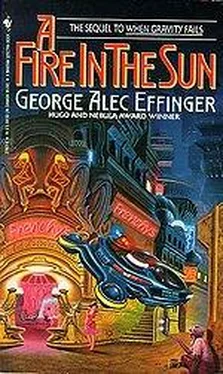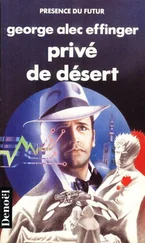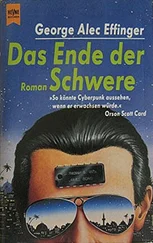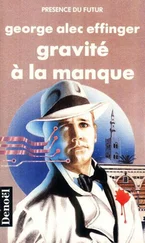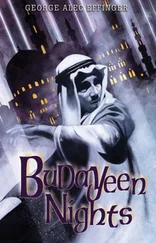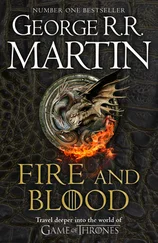George Effinger - A Fire in the Sun
Здесь есть возможность читать онлайн «George Effinger - A Fire in the Sun» весь текст электронной книги совершенно бесплатно (целиком полную версию без сокращений). В некоторых случаях можно слушать аудио, скачать через торрент в формате fb2 и присутствует краткое содержание. Год выпуска: 1989, ISBN: 1989, Издательство: Bantam Books, Жанр: Киберпанк, на английском языке. Описание произведения, (предисловие) а так же отзывы посетителей доступны на портале библиотеки ЛибКат.
- Название:A Fire in the Sun
- Автор:
- Издательство:Bantam Books
- Жанр:
- Год:1989
- ISBN:0-385-26324-4
- Рейтинг книги:4 / 5. Голосов: 1
-
Избранное:Добавить в избранное
- Отзывы:
-
Ваша оценка:
- 80
- 1
- 2
- 3
- 4
- 5
A Fire in the Sun: краткое содержание, описание и аннотация
Предлагаем к чтению аннотацию, описание, краткое содержание или предисловие (зависит от того, что написал сам автор книги «A Fire in the Sun»). Если вы не нашли необходимую информацию о книге — напишите в комментариях, мы постараемся отыскать её.
Nominated for Hugo Award for Best Novel in 1990.
A Fire in the Sun — читать онлайн бесплатно полную книгу (весь текст) целиком
Ниже представлен текст книги, разбитый по страницам. Система сохранения места последней прочитанной страницы, позволяет с удобством читать онлайн бесплатно книгу «A Fire in the Sun», без необходимости каждый раз заново искать на чём Вы остановились. Поставьте закладку, и сможете в любой момент перейти на страницу, на которой закончили чтение.
Интервал:
Закладка:
A Fire in the Sun
by George Alec Effinger
My grandfather, George Conrad Effinger, whom I never knew, was a police officer in the city of Cleveland during the Depression. He was killed in the line of duty. This book is dedicated to his memory, growing fainter now each year in the minds of those people who did know him, except for his policeman’s shield, Badge #374, hung with pride in a station house in Cleveland.
Children begin by loving their parents; after a time they judge them; rarely, if ever, do they forgive them.
—Oscar Wilde, The Picture of Dorian GrayWe’d ridden for many days out the coast highway toward Mauretania, the part of Algeria where I’d been born. In that time, even at its lethargic pace, the broken-down old bus had carried us from the city to some town forsaken by Allah before it even learned what its name was. Centuries come, centuries go: In the Arab world they arrive and depart loaded on the roofs of shuddering, rattling buses that are more trouble to keep in service than the long parades of camels used to be. I remembered what those bus rides were like from when I was a kid, sitting or standing in the aisle with fifty other boys and men and maybe another two dozen clinging up on the roof. The buses passed by my home then. I saw turbaned heads, heads wearing fezes or knit caps, heads in white or checked keffiyas. All men. That was something I planned to ask my father about, if I ever met him. “O my father,” I would say, “tell me why everyone on the bus is a man. Where are their women?”
And I always imagined that my father — I pictured him tall and lean with a fierce dark beard, a hawk or an eagle of a man; he was, in my vision, Arab, although I had my mother’s word that he had been a Frenchman — I saw my father gazing thoughtfully into the bright sunlight, framing a careful reply to his young son. “O Marid, my sweet one,” he would say — and his voice would be deep and husky, issuing from the back of his throat as if he never used his lips to speak, although my mother said he wasn’t like that at all — “Marid, the women will come later. The men will send for them later.”
“Ah,” I would say. My father could pierce all riddles. I could not pose a question that he did not have a proper answer for. He was wiser than our village shaykh more knowledgeable than the man whose face filled the posters pasted on the wall we were pissing on. “Father,” I would ask him, “why are we pissing on this man’s face?”
“Because it is idolatrous to put his face on such a poster, and it is fit only for a filthy alley like this, and therefore the Prophet, may the blessing of Allah be on him and peace, tells us that what we are doing to these images is just and right.”
“And Father?” I would always have one more question, and he’d always be blissfully patient. He would smile down at me, put one hand fondly behind my head. “Father? I have always wanted to ask you, what do you do when you are pissing and your bladder is so full it feels like it will explode before you can relieve it and while you are pissing, just then, the muezzin—”
Saied hit me hard in the left temple with the palm of his hand. “You sleeping out here?”
I looked up at him. There was glare everywhere. I couldn’t remember where the hell we were. “Where the hell are we?” I asked him.
He snorted. “ You’re the one from the Maghreb, the great, wild west. You tell me.”
“Have we got to Algeria yet?” I didn’t think so.
“No, stupid. I’ve been sitting in that goddamn little coffeehouse for three hours charming the warts off this fat fool. His name is Hisham.”
“Where are we?”
“Just crossed through Carthage. We’re on the outskirts of Old Tunis now. So listen to me. What’s the old guy’s name?”
“Huh? I don’t remember.”
He hit me hard in the right temple with the palm of his other hand. I hadn’t slept in two nights. I was a little confused. Anyway, he got the easy part of the job: Sitting around the bus stops, drinking mint tea with the local ringleaders and gossiping about the marauding Christians and the marauding Jews and the marauding heathen niggers and just in general being goddamn smooth; and I got the piss-soaked alleys and the flies. I couldn’t remember why we divided this business up like that. After all, I was supposed to be in charge — it was my idea to find this woman, it was my trip, we were using my money. But
Saied took the mint tea and the gossip, and I got — well, I don’t have to go into that again.
We waited the appropriate amount of time. The sun was disappearing behind a western wall; it was almost time for the sunset call to prayer. I stared at Saied, who was now dozing. Good, I thought, now I get to hit him in the head. I had just gotten up and taken one little step, when he looked up at me. “It’s time, I guess,” he said, -yawning. I nodded, didn’t have anything to add. So I sat back down, and Saied the Half-Hajj went into his act.
Saied is a natural-born liar, and it’s a pleasure to watch him hustle. He had the personality module he liked best plugged into his brain — his heavy-duty, steel-belted, mean mother of a tough-guy moddy. Nobody messed with the Half-Hajj when he was chipping that one in.
Back home in the city, Saied thought it was beneath him to earn money. He liked to sit in the cafes with me and Mahmoud and Jacques, all day and all evening. His little chicken, the American boy everybody called Abdul-Hassan, went out with older men and brought home the rent money. Saied liked to sneer a lot and wear his gal-lebeya cinched with a wide black leather belt, which was decorated with shiny chrome-steel strips and studs. The Half-Hajj was always careful of his appearance.
What he was doing in this vermin-infested roadside slum was what he called fun. I waited a few minutes and followed him around the corner and into the coffeehouse. I shuffled in, unkempt, filthy, and took a chair in a shadowy corner. The proprietor glanced at me, frowned, and turned back to Saied. Nobody ever paid any attention to me. Saied was finishing the tail end of a joke I’d heard him tell a dozen times since we’d left the city. When he came to the payoff, the shopkeeper and the four other men at the long counter burst into laughter. They liked Saied. He could make people like him whenever he wanted. That talent was programmed into an add-on chip snapped into the badass moddy. With the right moddy and the right daddy chips, it didn’t matter where you’d been born or how you’d been raised. You could fit in with any sort of people, you could speak any language, you could handle mrself in any situation. The information was fed directly to your short-term memory. You could literally become another person, Ramses II or Buck Rogers in the 25th century, until you popped the moddy and daddies out.
Saied was being rough and dangerous, but he was also being charming, if you can imagine that combination. I watched the shop owner reach and grab the teapot. He poured some into the Half-Hajj’s glass, slopping some more on the wooden counter. Nobody moved to mop it up. Saied raised the glass to drink, then slammed it down again. “ Yaa salaam!” he roared. He leaped up.
“What is it, O my friend?” asked Hisham, the proprietor.
“My ring!” Saied shouted. He was wearing a large gold ring, and he’d been waving it under the old man’s nose for two solid hours. It had had a big, round diamond in its center.
“What’s the matter with your ring?”
“Look for yourself! The stone — my diamond — it’s gone!”
Hisham caught Saied’s flapping arm and saw that, indeed, the diamond was now missing. “Must have fallen out,” the old man said, with the sort of folk wisdom you find only in these petrified provincial villages.
Читать дальшеИнтервал:
Закладка:
Похожие книги на «A Fire in the Sun»
Представляем Вашему вниманию похожие книги на «A Fire in the Sun» списком для выбора. Мы отобрали схожую по названию и смыслу литературу в надежде предоставить читателям больше вариантов отыскать новые, интересные, ещё непрочитанные произведения.
Обсуждение, отзывы о книге «A Fire in the Sun» и просто собственные мнения читателей. Оставьте ваши комментарии, напишите, что Вы думаете о произведении, его смысле или главных героях. Укажите что конкретно понравилось, а что нет, и почему Вы так считаете.
